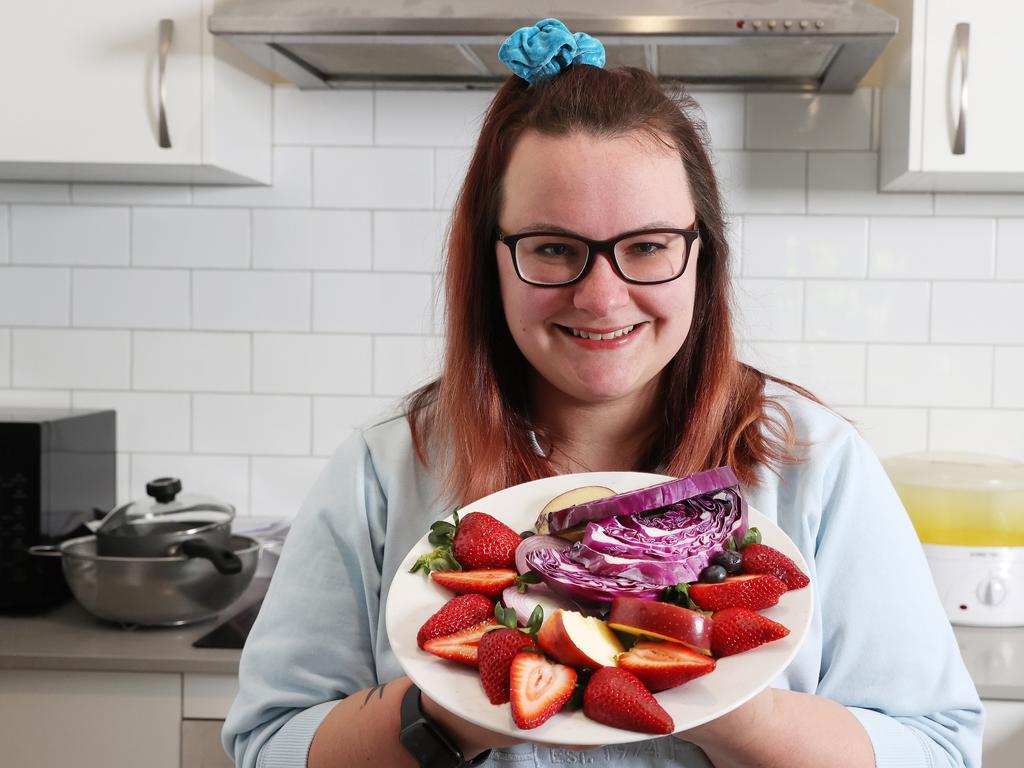New research could prove fruitful for asthma sufferers
An apple a day may keep the doctor away, but an asthmatic student has theorised what certain other fruit and vegetables might do.

Lifestyle
Don't miss out on the headlines from Lifestyle. Followed categories will be added to My News.
More than 200 million people worldwide who suffer from asthma could benefit from promising research by an Ipswich student who aims to prevent the condition.
University of Southern Queensland PhD student Lauren Brook spent the majority of her life struggling to breathe whenever she exercised.
Now she’s trying to help others who suffer, investigating if a preventative supplement derived from red, blue and purple fruit and vegetables could keep asthma away.
Ms Brook has been excited by her findings so far as she tests dietary interventions to reduce lung inflammation.
She said current treatment options didn’t cure asthma but simply masked the symptoms
“There is the potential now to be able to help people who suffer everyday but not give them all the awful side effects of expensive medications,” she said.
“This won’t particularly be a high-cost product due to its nature.”

The 28-year-old was motivated by her own experience with asthma, feeling like “something wasn’t right” until her diagnosis at 22.
She never wanted to exercise because she couldn’t catch her breath, and was told she was simply unfit.
“I always wondered why there’s lots of treatments for things that will kill you, but there’s not as much for conditions that are just really debilitating,” Ms Brook said.
“That made me want to find more information and try and fix them.”
The Redbank Plains woman hopes her research will offer the ultimate medical goal of prevention, rather than mask the symptoms as current treatments do.
She said recent research suggested that several nutritional interventions that included anthocyanins had been shown to be effective at reducing a specific phenotype of asthma, called exercise-induced bronchoconstriction, without any harmful side effects.
Anthocyanins are a sub-class of flavonoids, which are a diverse group of naturally occurring compounds found in fruits and vegetables, which have anti-inflammatory properties.
“It’s currently unknown whether or not anthocyanins could improve lung function and respiratory symptoms in otherwise healthy humans with exercise-induced bronchoconstriction,” Mrs Brook said.
With a Diploma of Nursing, a Bachelor of Health Science and a Masters in Human Nutrition, she has been theorising about the benefits of medications derived from plants for about a decade.
Ms Brook is currently finalising the initial testing phases of a global questionnaire targeted at asthma sufferers.
A 10-week supplement trial is due to begin in 2022.
Anyone suffering from asthma and interested in being part of the initial research questionnaire is invited to contact Ms Brook via email.





